Instructions on how to install Windows 8, install Windows 8 with USB from A to Z extremely simple
Similar to Windows 7, both Windows 8 and 8.1 can be installed on your computer with just one USB stick. If you are trying to use this version of Windows but do not know how to install it, follow the instructions from A to Z of Thuthuatphanmem.vn . Don't forget, the following guide is applicable for both Windows 8 and 8.1.
Especially, if you're running Windows 8 and want to upgrade to 8.1, you can download the free update to Windows 8.1. Just click on the Windows Store box on the Start screen . After you switch to Windows 8.1, you will automatically receive updates.
* In the whole of this guide, I defaulted the Windows 8 / 8.1 installation drive as drive C (by most users). If your installation drive has a different name, it's the same.
1. Check the computer configuration to install Windows 8 / 8.1
If you want to run Windows 8 / 8.1, your computer should have at least:
- 1 GHz processor or faster that supports PAE, NX and SSE2
- RAM 1 GB (for 32-bit version) or RAM 2 GB (for 64-bit version)
- Hard disk with 16 GB free space (for 32-bit versions) or 20 GB (for 64-bit versions)
- DirectX 9 graphics device with WDDM driver
2. Prepare
- A 4GB capacity USB or higher
- ISO file of Windows 8 / 8.1 installation (Windows 8.1 can be downloaded on Microsoft homepage); If the computer hard drive is GPT, then download the 64-bit Windows ISO file (instructions for viewing the standard hard drive in section 4. Create a USB boot - Step 1 )
- Rufus USB boot software (download here)
- Store important files in USB and C drive to another place, because the next process will delete all files in USB and this drive.
3. Determine drive capacity C
- Open Computer (or This PC , depending on the operating system). Check the total capacity and free space of the C drive (helps later to recognize where is the C drive to install Windows). Remember these numbers carefully (it is best to record them).
As shown below, drive C is the drive with a total capacity of about 40 GB and free space of 33 GB.
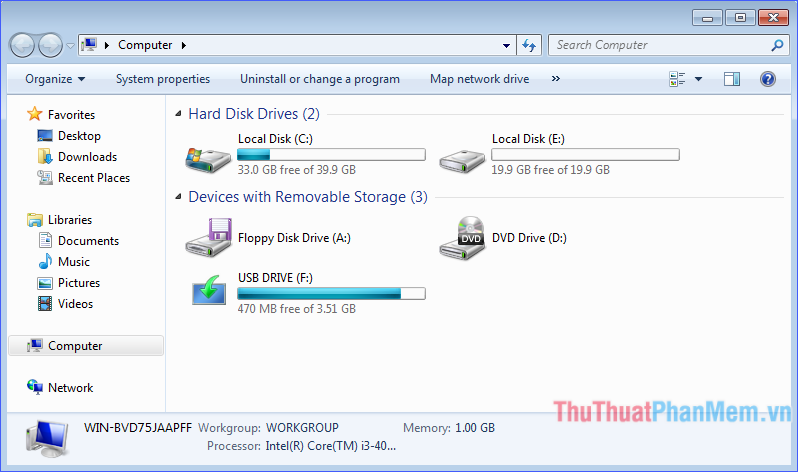
4. Create USB Boot
Step 1: Check the standard hard drive (MBR or GPT)
- Check the standard hard drive: press the key combination Windows + R , on the Run window type 'diskpart' and press Enter .
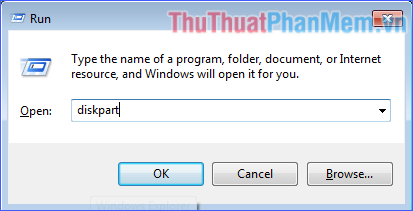
- On the DiskPart interface , type the command 'list disk', then press Enter . In Disk 0 , column Gpt , if there is an *, then the hard drive standard is GPT, if without the * then the hard drive standard is MBR. As shown below, there is no * so the hard drive follows the MBR standard.
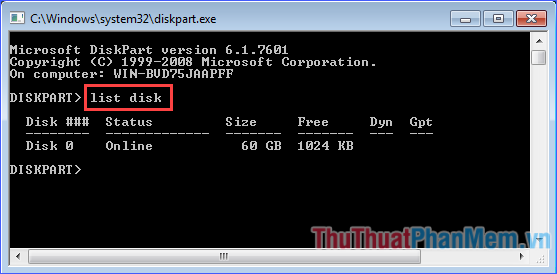
* Again, if your hard drive is GPT compliant, you can only install 64-bit Windows 8 / 8.1.
Step 2: Create a USB boot Windows 8 / 8.1
* To continue, you need to turn off the active antivirus software (if any).
- Open the downloaded Rufus software in Part 2. Prepare (no installation required). Set up as follows:
+ Device : Select USB boot.
+ Boot selection : Click SELECT , navigate to the ISO file installed Windows 8 / 8.1.
+ Partition scheme : Standard hard drive, MBR or GPT , depending on the results tested in step 1.
+ Target system : MBR hard drive then select BIOS (or UEFI-CSM) , GPT hard drive then choose UEFI .
+ Volume label : USB drive name.
+ File system : Select NTFS if the drive is MBR, or FAT32 if the drive is GPT.
- After setup, click on START to begin the process of creating USB boot.
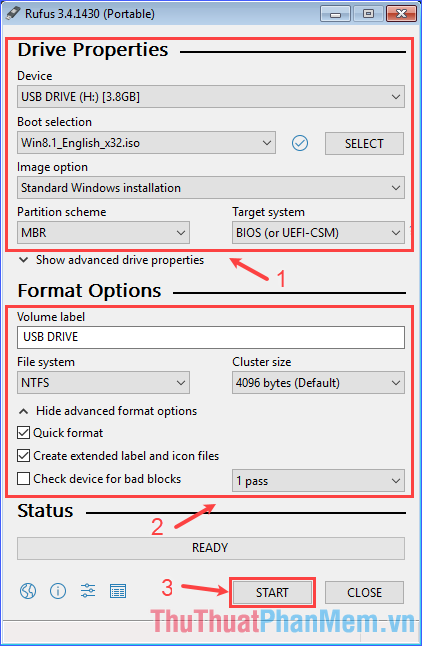
- After successfully creating a USB boot, open the USB, see the Size information of the autorun file , if equal to 1 KB is successful. If it is equal to 0 KB, check that the antivirus software is turned off, if not, then turn off and recreate the USB boot.
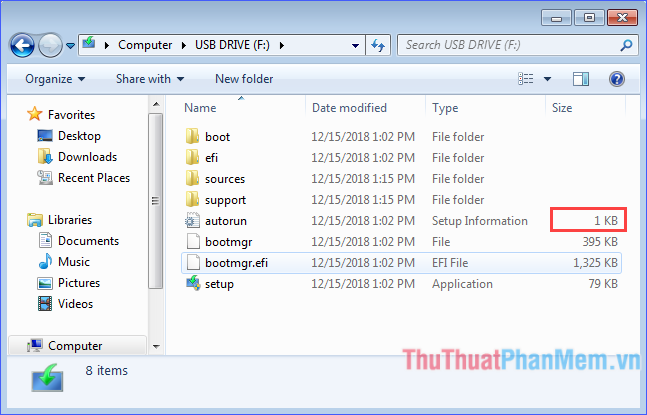
5. Install Windows 8 / 8.1 from USB boot
Step 1: Boot from USB
- Plug the USB into a computer that needs Windows 8 / 8.1 installed.
- Restart the computer to be installed. As soon as the machine starts to boot, press the shortcut key repeatedly on the Boot Menu . This key varies from computer to computer, and usually appears on the screen the moment Windows boots up, so you need to watch and press it quickly. Also you can refer to the shortcut menu for Boot Menu of some famous brands here.
- When the Boot Menu is displayed, use the up / down arrow keys to select the USB boot device, and then press Enter . Can easily identify which line is USB, usually will write the word 'USB' or your USB name.
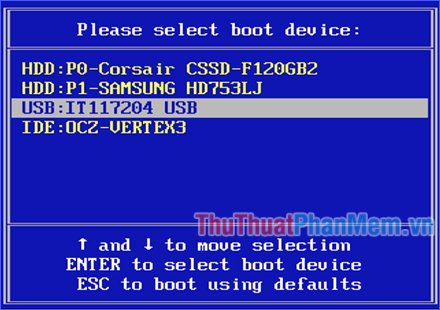
- When booting into USB boot successfully, the screen will look like the following:
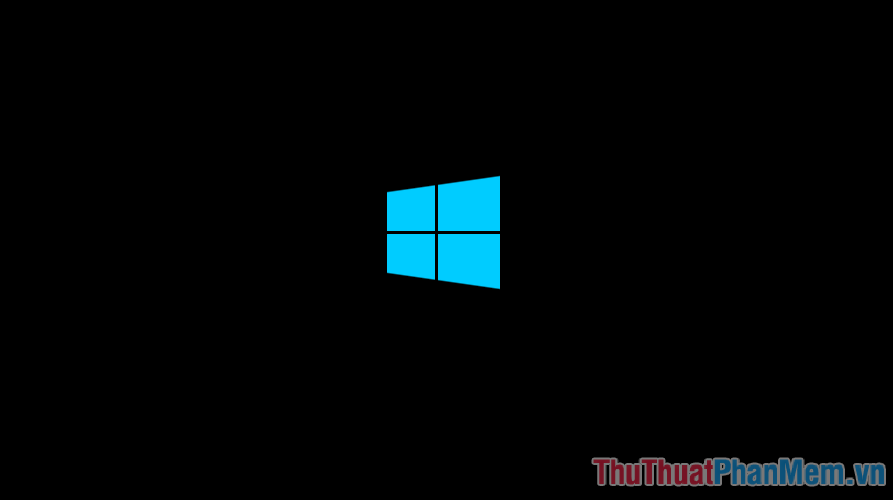
Step 2: Install Windows 8 / 8.1
- Set the language, time format, currency and keyboard - input method, then press Next .
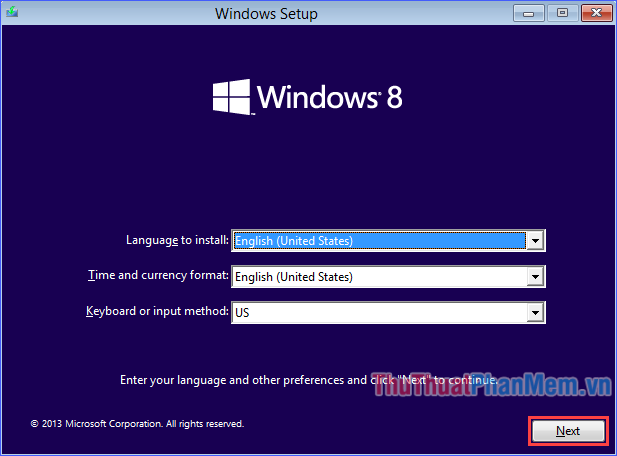
- Click Install now .
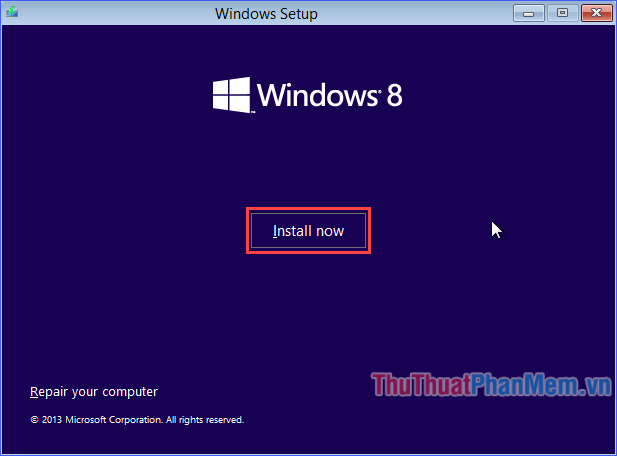
- Enter the Product Key and click Next .
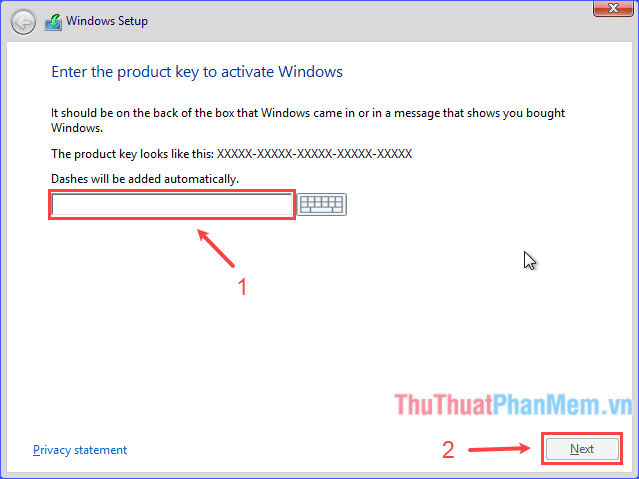
- Check the box I accept the license terms and then click Next .
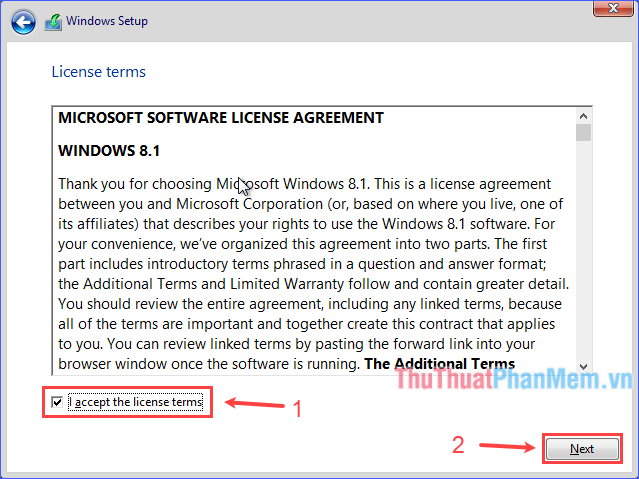
- Choose the form of Custom installation .
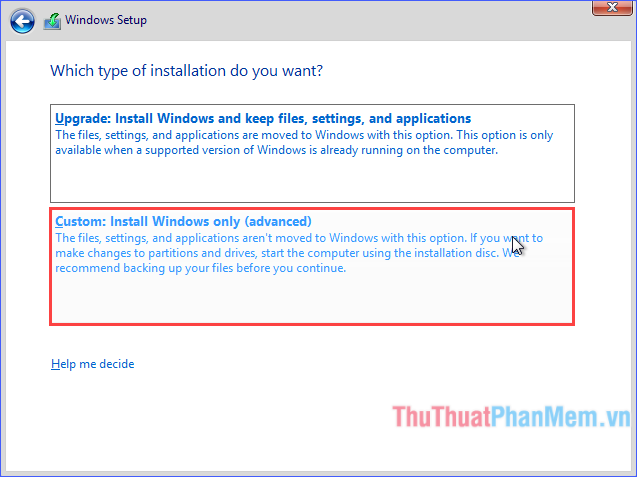
- Determine which partition is drive C contains the old operating system thanks to the information I've told you recorded in section 3. Determine the C drive capacity . As in this guide, drive C has a total capacity of 40 GB and a free space of 33 GB, which is here it is Disk 0 Partition 1 .
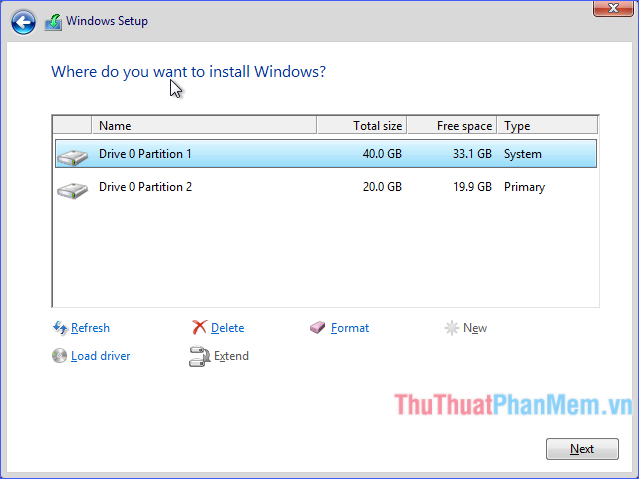
- Click on the partition C has just identified, notice the bottom corner of the installation window with the error message Windows can't be installed on . (Show details) or not. If so, it is likely that you have created the wrong USB boot drive for the hard drive. Try recreating another standard.
- Next, after clicking on the C drive partition, click on Delete to delete. A warning to delete data is displayed, click OK .
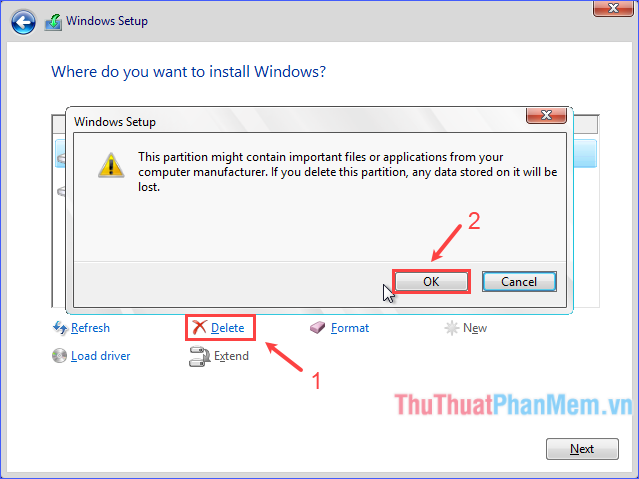
- After deleting the C drive partition, the partition name becomes Unallocated Space . Select the partition and click Next to begin installing Windows 8 / 8.1.
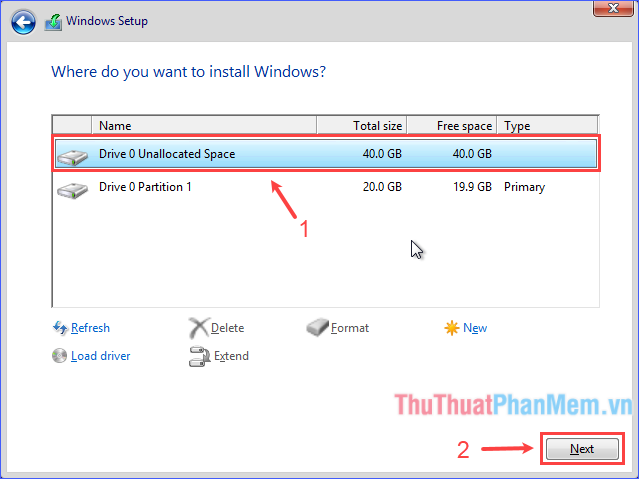
- Wait for the installation of Windows 8 / 8.1 to complete, usually takes a few dozen minutes. During the process, the system will reboot several times.
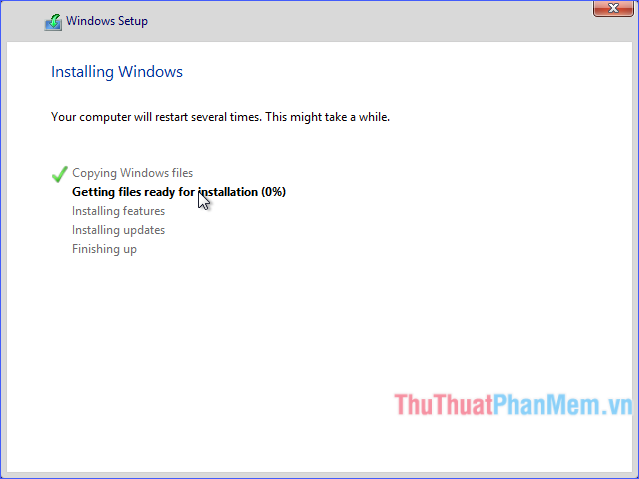
6. Set up for new Windows
- The Windows 8 / 8.1 screen starts to boot:
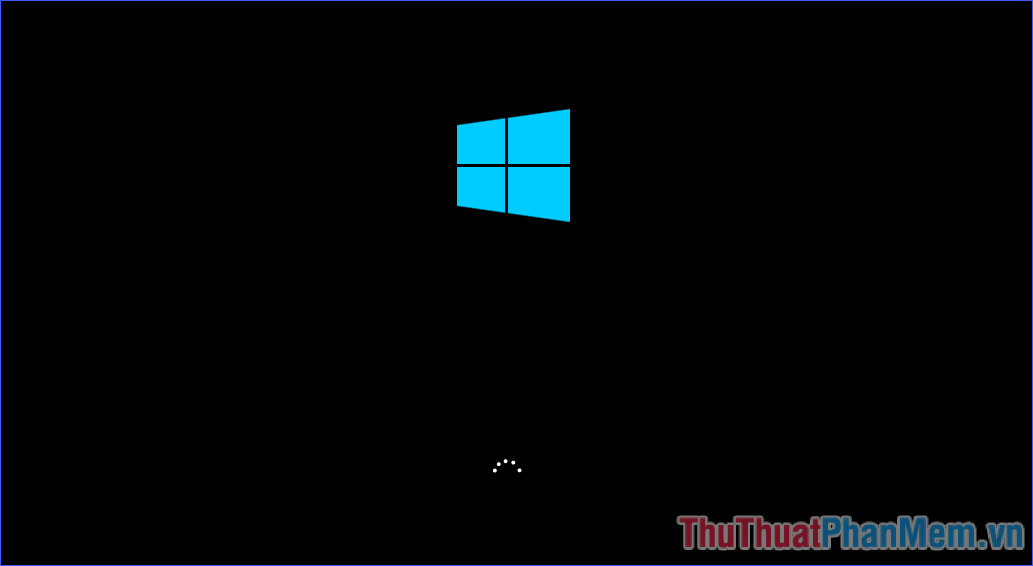
- Next, choose the color you want and give the computer a name, then click Next .
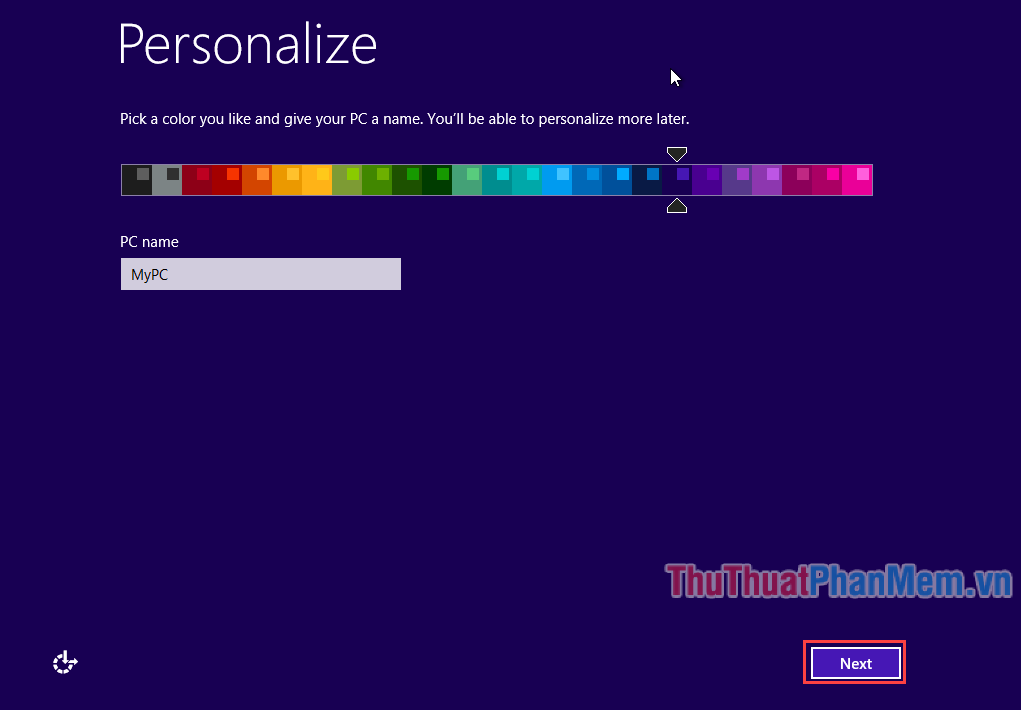
- Choose Use express settings (or Customize if you want to customize some settings yourself).
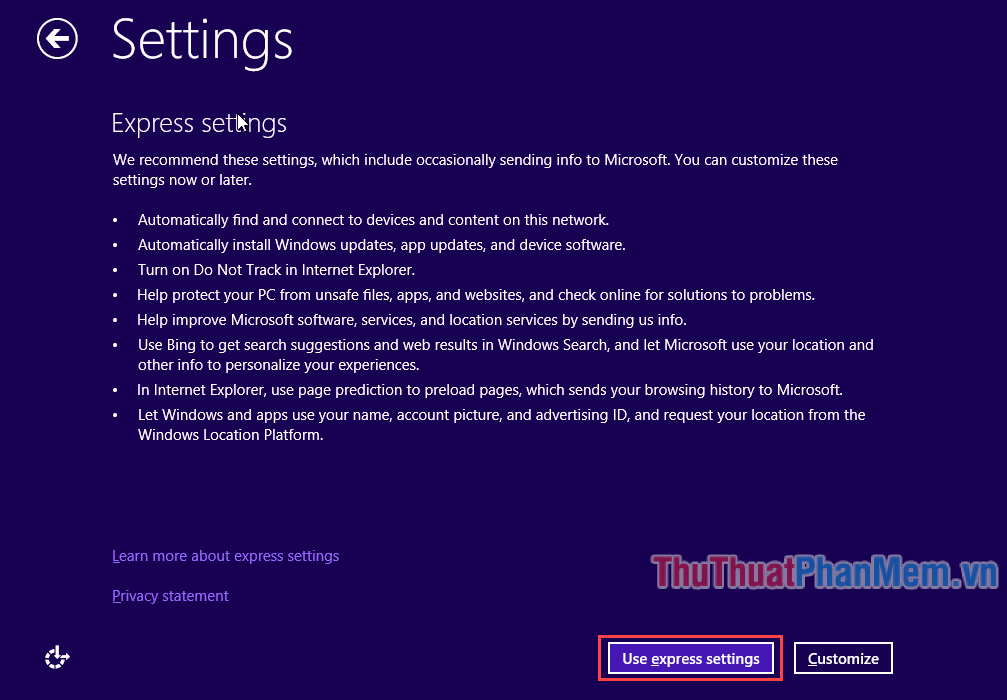
- Choose Create a local account .
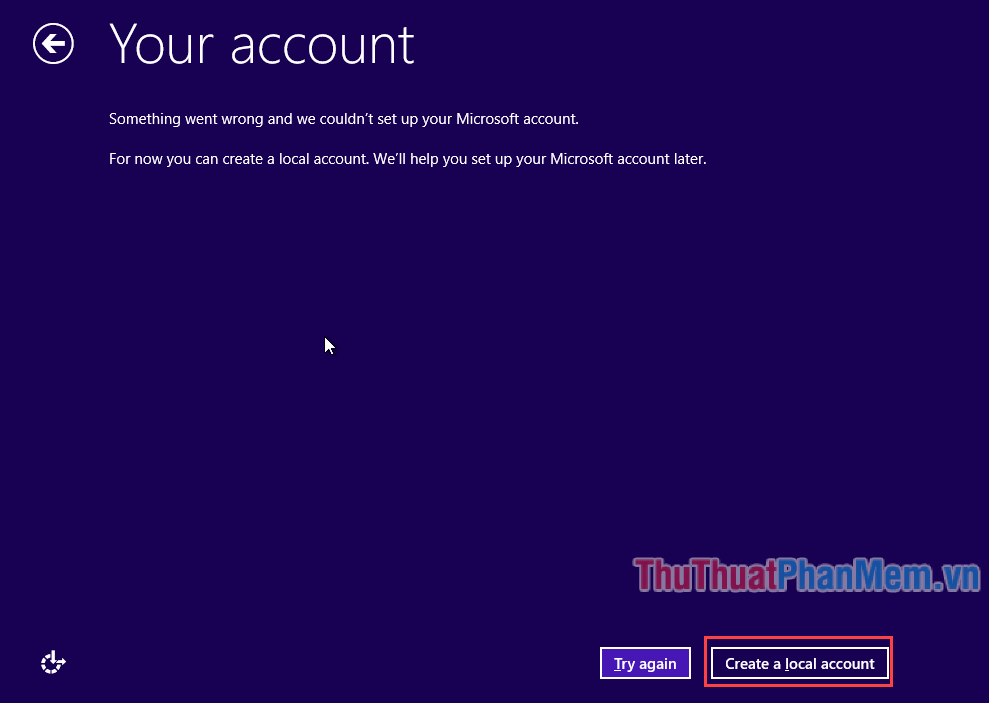
- Create an account (username, password, re-enter password, and password hint).
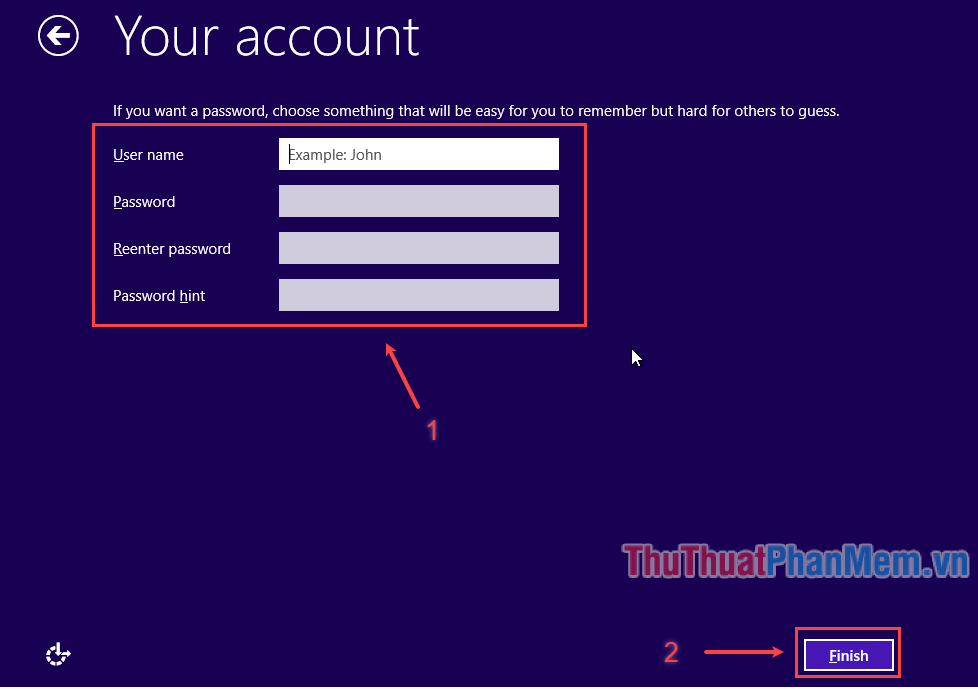
- Wait for Windows to finish the rest.
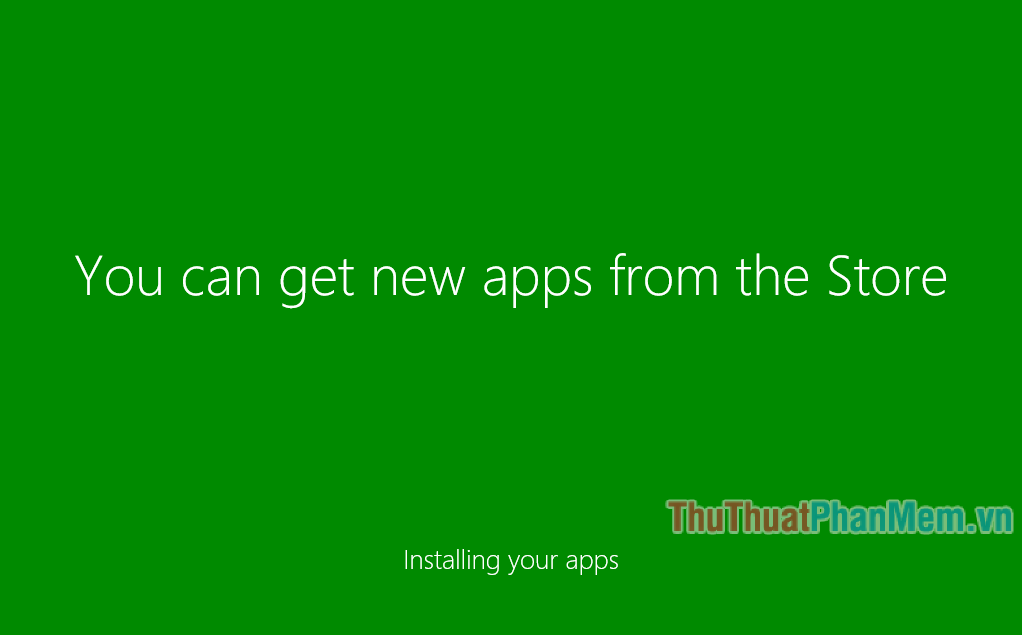
- And now, Windows 8 / 8.1 is ready!
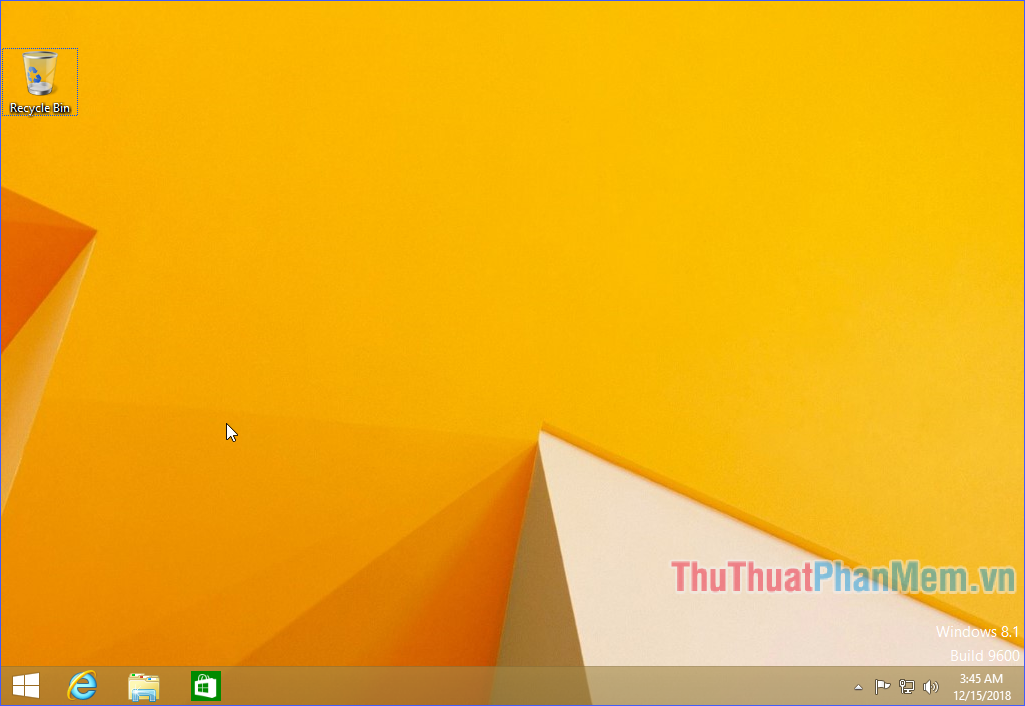
Finally, after a lot of work, you can now install Windows 8 / 8.1 yourself with just one USB device. If any errors arise during the installation process, please first go back to see if you got it right. With some common errors like creating the wrong USB boot drive, of course you just need to try again. Wish you successfully installed Windows 8 / 8.1 with USB!
You should read it
- How to install Windows 8.1 from USB
- Install Windows 10 with a super fast USB in just a few simple steps
- How to install Windows 10 from USB with ISO file
- Instructions for installing Windows 8.1 on Mac
- Instructions on how to install Windows 10 (32bit and 64bit) in the most detailed!
- Instructions to install Windows by USB, create USB boot, USB install Windows
 What is bitlocker?
What is bitlocker? How to turn on Wake-On-LAN for the computer - Turn on the remote computer in the LAN
How to turn on Wake-On-LAN for the computer - Turn on the remote computer in the LAN How to use MSConfig in Windows to fix problems
How to use MSConfig in Windows to fix problems Instructions for installing Flash Player for browsers on computers
Instructions for installing Flash Player for browsers on computers How to switch from FAT32 to NTFS without losing data with the CMD command in Windows 7,8,10
How to switch from FAT32 to NTFS without losing data with the CMD command in Windows 7,8,10 How to take screenshots Laptop HP fast and simple
How to take screenshots Laptop HP fast and simple